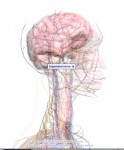An article in the March 24 NEJM called Specialization, Subspecialization, and Subsubspecialization in Internal Medicine might have some heads shaking: Isn’t there a shortage of primary care physicians? The sounding-board piece considers the recent decision of the American Board of Internal Medicine to issue certificates in two new fields: (1) hospice and palliative care and (2) advanced heart failure and plans in-the-works for official credentialing in other, relatively narrow fields like addiction and obesity.
The essay caught my attention because I do think it’s true that we need more well-trained specialists
Posted in Essential Lessons, Future of Medicine, health care costs, health care delivery, Medical Education, PolicyTagged expertise, health care costs, medical specialties, physician shortage, primary care, subspecialties, telemedicine, value of expertise




